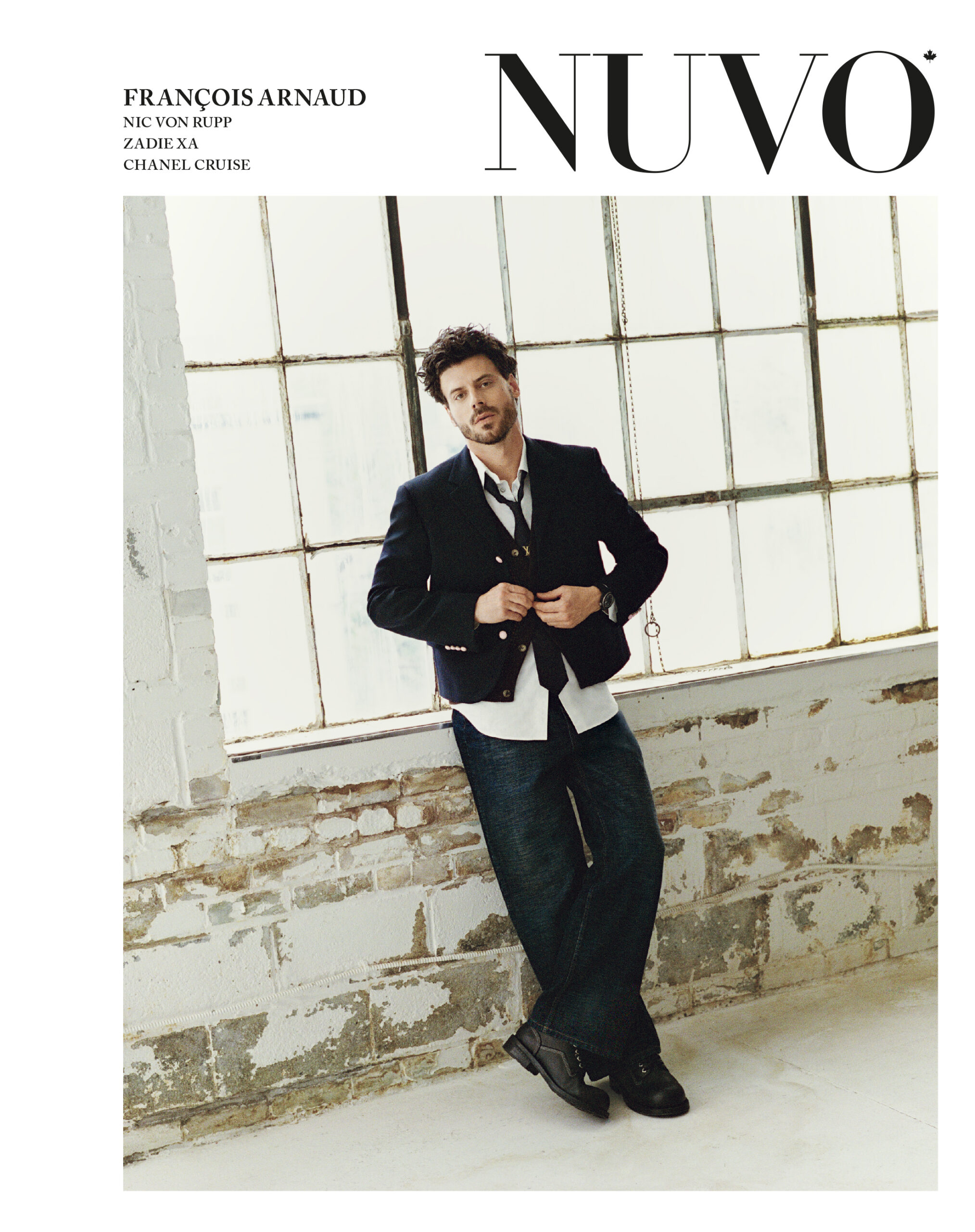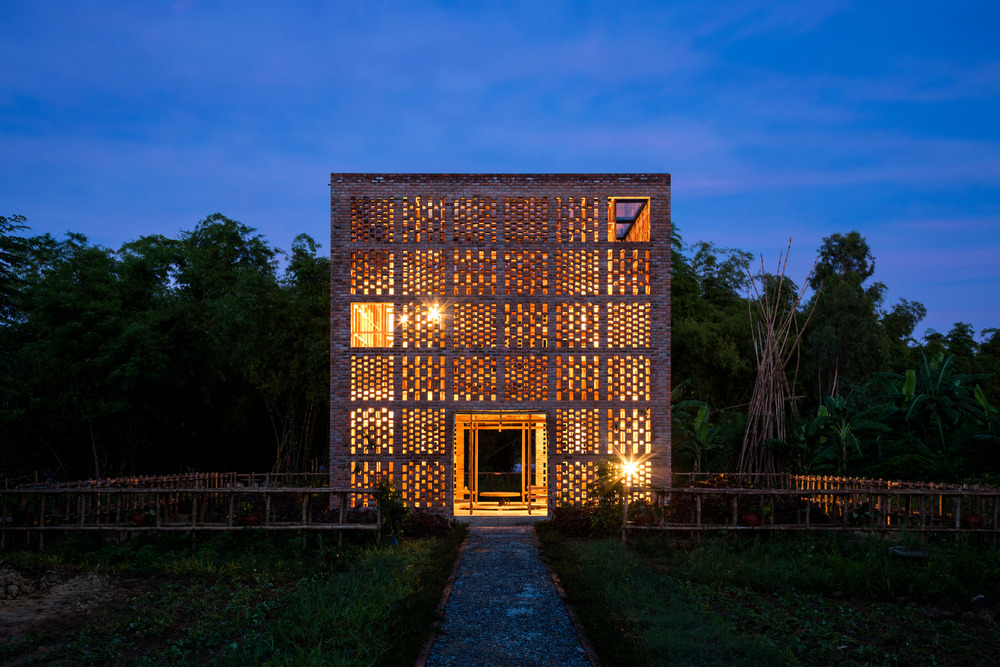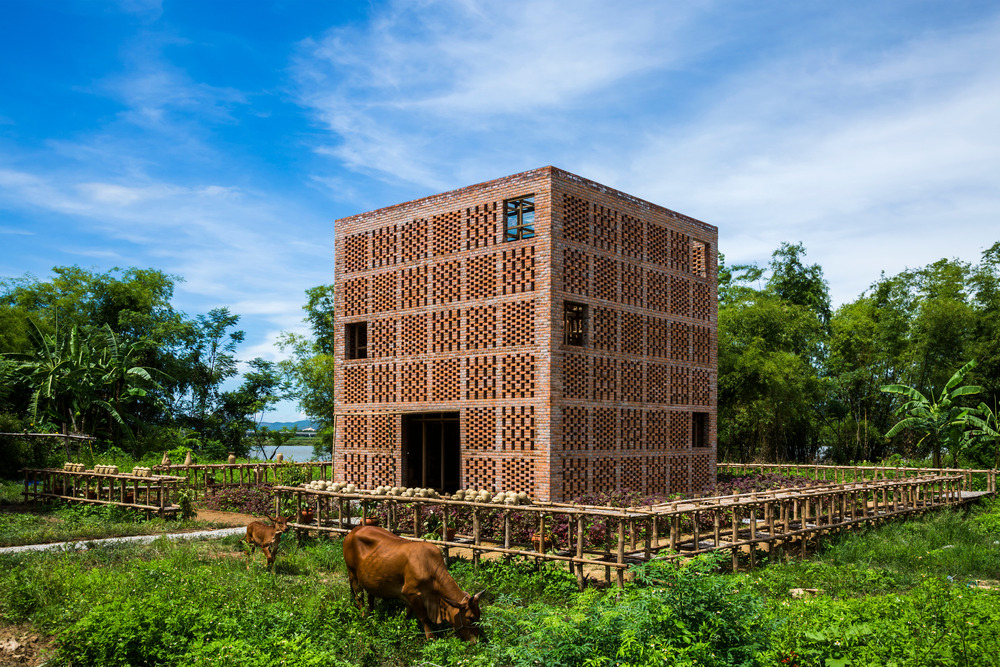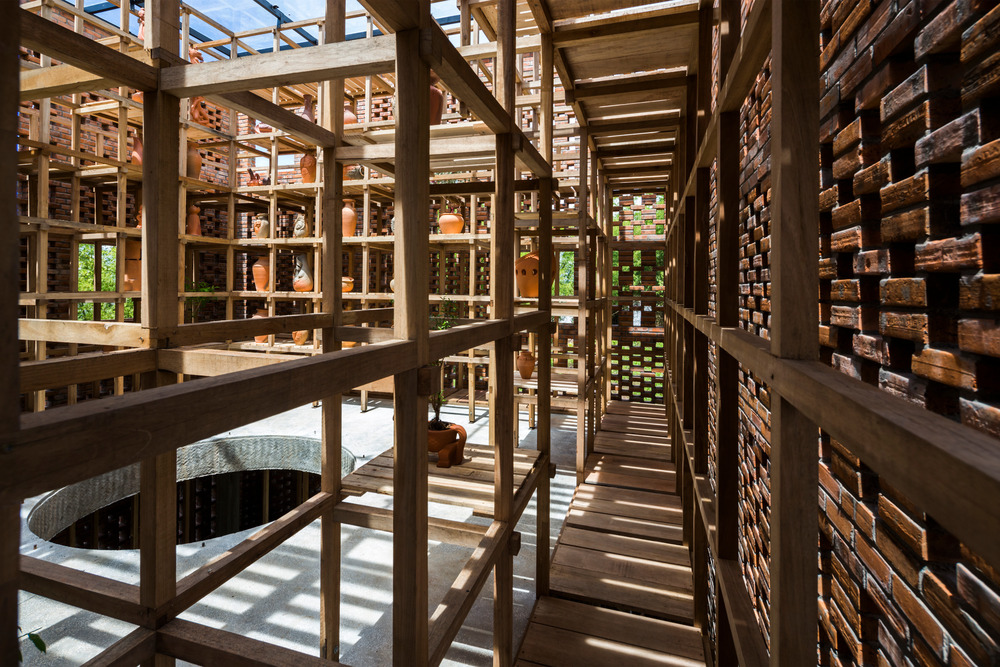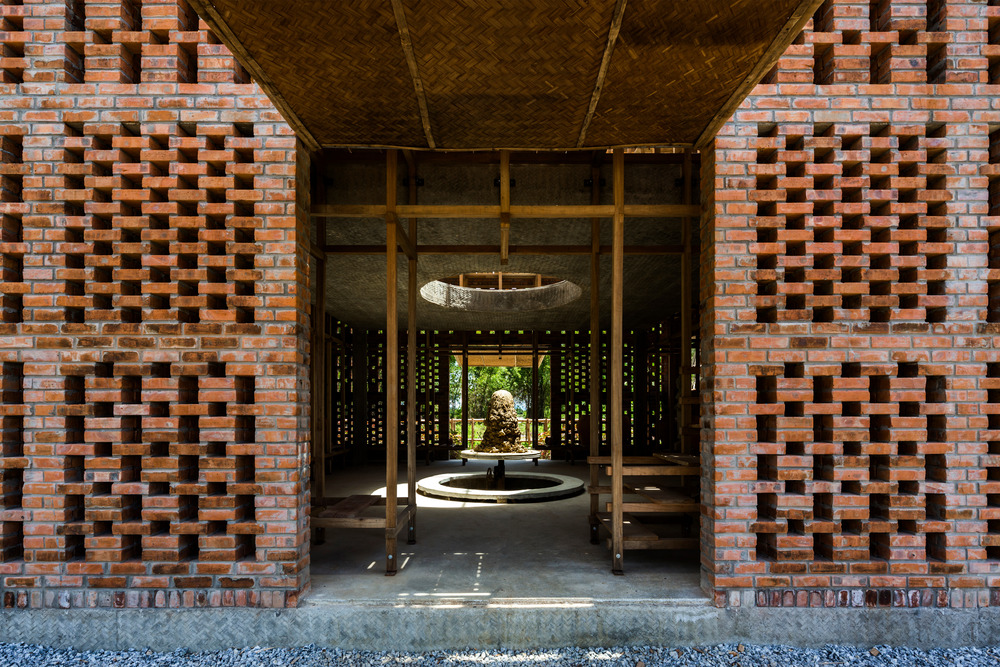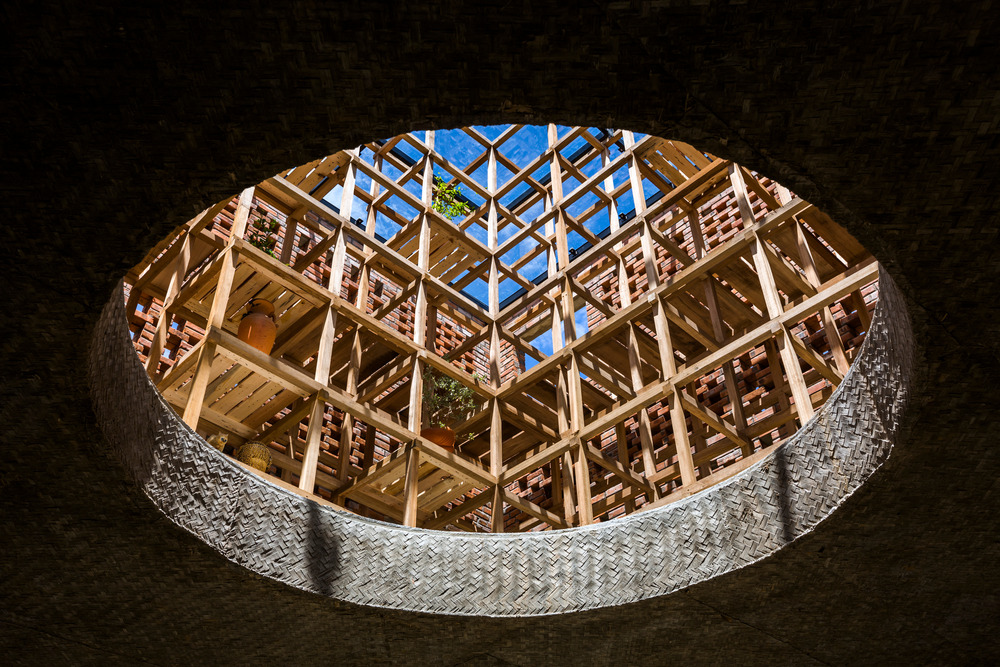From the crest of Ngoc Linh Mountain, Vietnam’s Thu Bon River begins its journey. Flowing throughout the Quang Nam province, the river has historically been a gathering place for communities to congregate for fishing, trading, and celebrating festivals. Alongside these bustling banks in the Dien Ban district, once the capital of the long-since-dissolved Champa Kingdom, sits Tropical Space’s Terracotta Studio. The brick, wood, concrete, and bamboo aesthetic are reminiscent of the architecture from those ancient times. Under the roofless ceiling, beneath a circular opening in the centre of the second floor, lay a single turning table at which Le Duc Ha creates his earthen wares.
Le, an artist highly regarded for crafting terracotta pottery and art depicting traditional Vietnamese figures, had the studio built for him this year by architectural collective Tropical Space. The Ho Chi Minh City–based architects have won multiple awards for their residential Termitary House—a space-efficient brick dwelling designed with its urban, monsoon-prone location of Danang in mind. The team made no exception in its connection to its subject’s surroundings with the Terracotta Studio, establishing a paradoxical air of seclusion with the sharp-edged structure, while allowing the natural world to leak in through the interleaved brick walls. The breeze off the river, the rustling of the trees, and the sun’s rays as Le works on his pottery and sculptures from dawn to twilight are all granted access into the artist’s creative space. Meanwhile, the public is welcome to wander the studio, able to perch on one of the benches in the ground-level workshop with a cup of tea, or peer down from above before meandering through the gardened grounds. Tracing the mezzanine are bamboo shelves for Le to store his sculptures and pottery on higher ground—serving the dual purpose of being a place for them to dry, as well as a protected spot for when the river overflows and floods the area.
All that now remains of those early Champa centuries are dilapidated brick structures and the rushing of the Thu Bon River, but the Terracotta Studio encompasses more than just Le’s contemporary work; it draws upon the area’s history, geography, and people to create a sanctuary for artist and audience alike.
Photos by Hiroyuki Oki.

